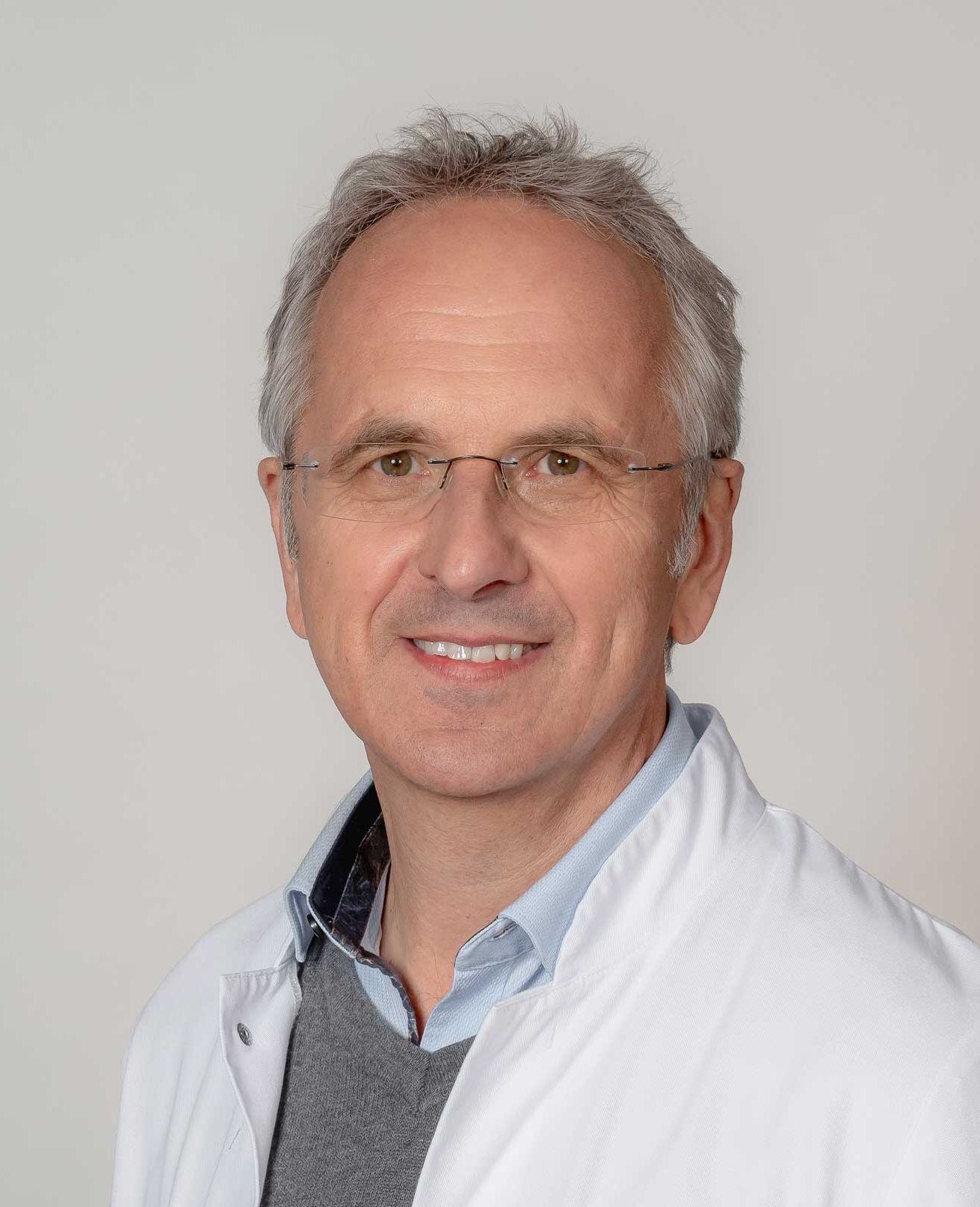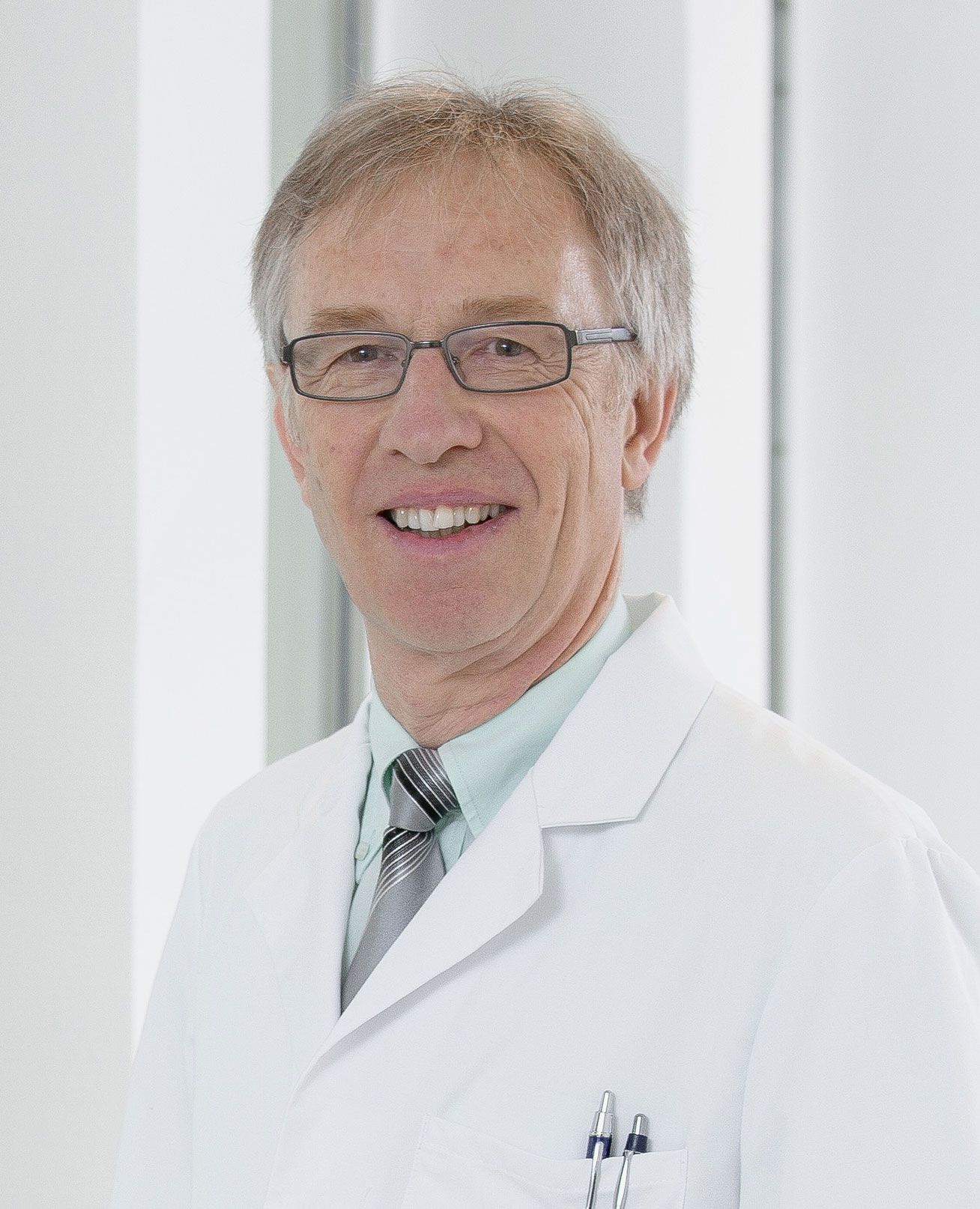INTERVIEW
FOUR KEYS TO A HEALTHIER LIFE:
FOCUSSING ON METABOLIC SYNDROME
If you keep your heart, blood vessels and metabolism fit, you have a good chance of maintaining your well-being and vitality into old age. However, when four factors come together, the risk of heart attacks and strokes increases significantly: Obesity, high blood pressure, cholesterol and lipometabolic disorders.
Doctors call this combination ‘metabolic syndrome’. However, there is a lot that can be done to prevent and treat these four conditions.
Prof Dr Andreas Michalsen and Dr Rainer Matejka answer your questions.

PROF. DR. ANDREAS MICHALSEN
Professor of Clinical Naturopathy at Charité Berlin and Head of the Department of Internal Medicine and Naturopathy at Immanuel Hospital Berlin-Wannsee.
Further information on Prof Dr Michalsen can be found at the end of the interview.

DR. MED. RAINER MATEJKA
Fasting doctor, specialist in general medicine, naturopathy and biological medicine. Head physician at the Malteser Klinik von Weckbecker in Bad Brückenau from 2016 to 2024.
Further information on Dr Matejka can be found at the end of the interview.
High blood pressure, obesity and metabolic syndrome in particular can be treated more successfully than with medication alone. Why?
DR. MED. RAINER MATEJKA:
Metabolic syndrome has a lot to do with lifestyle. In the period of scarcity immediately after the Second World War, it was virtually unknown or only occurred very rarely. Today we know that the trifecta of lack of exercise, stress and malnutrition in particular paves the way for metabolic syndrome. Accordingly, the guidelines of the German and American diabetological societies, for example, place lifestyle changes at the forefront of therapy. However, it is not always possible to eliminate all symptoms, especially as lifestyle is often characterised by constraints. However, it is usually possible to reduce the progression of symptoms and the number of medications by making lifestyle changes.
PROF. DR. ANDREAS MICHALSEN:
Correct. Metabolic syndrome and the components of high blood pressure, type 2 diabetes, obesity and lipometabolic disorders are not genetic diseases, or only to a very small extent. Around 80-90% of them are the result of our no longer ‘species-appropriate’ lifestyle. This also explains why the many drugs used, from antihypertensives to statins, from antidiabetics to the brand new weight loss substances, do not cure the diseases, but only help to control them symptomatically. If we really want to prevent or even cure these diseases, then we cannot avoid lifestyle medicine, i.e. naturopathic treatment methods. Medication certainly has its place, but we can only get to the root of the problem with lifestyle therapy methods.

Which lifestyle changes and therapies have been proven to be effective for these diseases? What role does therapeutic fasting play in this?
DR. MED. RAINER MATEJKA:
In terms of diet, reducing or avoiding isolated carbohydrates (‘sugar’) is particularly important, as is limiting animal fatty acids (especially inflammatory fatty acids such as arachidonic acid in red meat and sausages). Avoiding convenience foods and moving away from the so-called Western diet in favour of a Mediterranean diet with a high proportion of fresh vegetables, high-quality vegetable fats and omega-3 fats (fish oil) while at the same time limiting red meat has proven to be effective. Exercise does not have to be a competitive sport, on the contrary: even a 30-minute brisk walk every day has a significant effect. If this is not possible, 3.5 hours of appropriate exercise or light sport per week is sufficient. Exercise and sport improve the metabolism as a whole, especially the blood sugar and fat metabolism, regulate blood pressure, improve blood circulation, strengthen the immune system and even have anti-depressant effects.
Therapeutic fasting according to the Buchinger method - i.e. fasting with juices and vegetable broths - has proven itself in empirical medicine for decades and has been increasingly supported by studies in recent years. One major advantage is that therapeutic fasting, like diet and exercise, has an interdisciplinary effect. Metabolic syndrome is also ultimately a multidisciplinary problem, often accompanied by orthopaedic conditions and psychovegetative exhaustion.
PROF. DR. ANDREAS MICHALSEN:
Studies show that seven to ten days of modified fasting can greatly improve one of the biggest problems of metabolic syndrome, fatty liver. There is also such evidence for intermittent fasting. With regard to high blood pressure, you can literally watch your blood pressure drop while fasting. One of the first things you learn as a fasting doctor is that you have to stop or at least greatly reduce your high blood pressure medication at the beginning of the fast to avoid low blood pressure. This clearly illustrates how strong the blood pressure-lowering effect of fasting is. However, it is also fascinating that this effect does not end when the fasting ends; there is definitely a lasting effect. We explain this with an increased sensitivity of the blood pressure receptors due to the fasting therapy. High blood pressure, fatty liver and type 2 diabetes can therefore be treated excellently with therapeutic fasting.
After that, there is also a very good window of opportunity to change your eating habits. The right diet is extremely important in the long term. In some cases, an individual approach is required. The basis is certainly a plant-based, wholesome diet, but sometimes you are more likely to go in the direction of low-carb or sometimes low-fat. This depends on the patient's situation. Exercise is another essential component of lifestyle medicine. However, more recent data shows that nutrition, which for me also includes fasting therapy, is even more important. Stress reduction is also very relevant for me, as many people cannot get their eating habits under control due to too much stress in everyday life. We therefore teach our patients practicable methods to combat stress, such as meditation or yoga, but also autogenic training, Qigong and other methods.
Can therapeutic fasting be counterproductive for certain patients?
DR. MED. RAINER MATEJKA:
Since metabolic syndrome typically occurs in more pyknic or athletic-pyknic people, fasting is usually always a good basis. However, the patient must also be prepared for it. Therapeutic fasting is not something you do “just like that” - “from one day to the next”, but you should prepare yourself mentally for it. Experienced fasters naturally have it easier in this respect.
Fasting is counterproductive in all forms of pronounced asthenia (often bordering on underweight), general physical weakness, advanced age with cognitive deficits or coordination disorders. However, these are criteria that do not generally apply to patients with metabolic syndrome.
PROF. DR. ANDREAS MICHALSEN:
If there is an eating disorder such as bulimia or a so-called binge eating disorder, fasting can exacerbate the problem. Fasting is also usually not suitable as a therapy for symptomatic gallstones and gout, or if it is, then only under good medical supervision and treatment. Finally, you have to weigh up whether to fast if you are severely overweight. Here it can sometimes make more sense to practice a good eating rhythm with a healthy, wholesome diet as part of a therapy or spa treatment than to fast. On the other hand, fasting can also be the ideal start for a change in diet, so an individual approach must be taken here.

OUR RECOMMENDATION FOR YOUR STAY WITH METABOLIC COMPLAINTS
FASTING CURE CLASSIC
Our interdisciplinary therapy program specially designed to realign the body in the case of metabolic disorders.
7 nights from € 1.808
You can cancel or rebook your stay free of charge up to 14 days before arrival. Valid for stays until December 31, 2025.
Which measures should be taken in a clinic and which can be successfully applied at home?
DR. MED. RAINER MATEJKA:
The well-known fasting doctor Hellmuth Lützner once spoke of preventive fasting for healthy people, which can be done on an outpatient basis, and of inpatient therapeutic fasting for people who are already ill. In the case of metabolic syndrome, especially in the case of pre-existing diabetes that is being treated with medication and also in the case of structural heart involvement, an inpatient stay is strongly indicated. If symptoms are only beginning to appear with obesity, borderline blood pressure and an otherwise stable cardiovascular situation, outpatient treatment can also be considered if good care is provided. Procedures such as intermittent fasting can certainly be carried out quite easily at home.
However, diabetics who are on insulin or antidiabetic medication, for example, should always be closely supervised by a doctor. However, the aim is to reduce the need for medication and insulin as much as possible, especially in the case of diabetes. If appropriate measures are implemented consistently, 75% of all type 2 diabetics should be able to manage without medication in the medium term.
PROF. DR. ANDREAS MICHALSEN:
Fasting in a clinic is the ideal setting, especially if you have to take medication and have several diagnoses. Experienced fasters can also carry out fasting therapy at home over time, but at the beginning I recommend good medical supervision in a clinical setting. Ultimately, the advantage of naturopathy and lifestyle medicine is that you can carry out and continue most of the procedures effectively at home in your everyday life.
You only need two square meters in your living room for meditation or yoga, your diet is decided in your own kitchen, fasting - as already mentioned - can also be integrated at home. When it comes to exercise, the long-term exercise concept in everyday life is what counts anyway. With regard to fasting, I now recommend doing it several times a year. For example, once in a clinic and then once or twice more at home would be ideal. This way, you can always have your diet checked and improved by a doctor.
